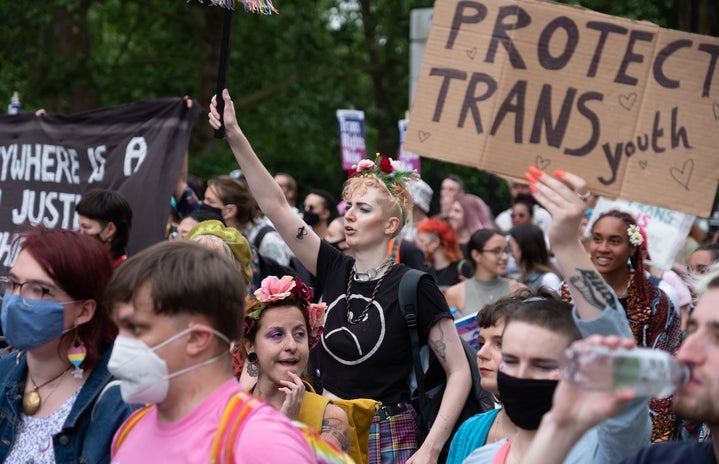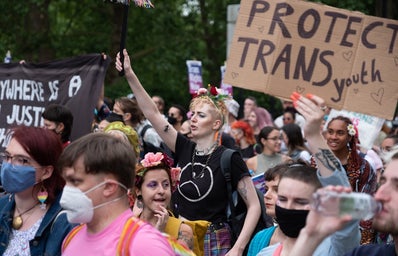School districts in the commonwealth of Virginia outwardly have opposed Gov. Glenn Youngkin’s new transgender policies. In the last week of September, we saw thousands of students from about one hundred schools walk out over Youngkin’s school policies, but this did not end the conversation.
At the time of a Democratic administration two years ago, legislation proposed a policy that was meant to protest transgender students in Virginia. The Department of Education stated that they “shall develop and make available to each school board model policies concerning the treatment of transgender students in public elementary and secondary schools that address common issues regarding transgender students in accordance with evidence-based best practices.” The 133 school districts in Virginia must adhere now to the new, adapted model of this policy.
In Youngkin’s 2022 Model Policies, he states that the policies adhere to the first amendment. Youngkin’s policies claim that you may change your sex in school records with an updated birth certificate or another redeeming form of identification. His main guideline deals with the right of parents to make decisions for their children and that schools will make the best decision for their children as they communicate tightly with their parents.
This poses an issue for students who are not yet out to their families or who may have a preferred name and pronouns their parents are unsupportive of.
At a high school in Richmond, I spoke to a student who asked to remain anonymous regarding Youngkin’s new policies. She is different from her straight, cisgender classmates, as she is a Black, transgender woman. She was assigned as a male at birth and feels that the high school she attends is a supportive space for her to be in.
Transgender students must adhere to their gender assigned at birth under Youngkin’s new policy, with parental permission being the key factor in being able to use your preferred name and pronouns.
“When I registered as a freshman, they already told my teachers what I go by, and they really just respect me for who I am,” the student said.
As a transgender student, she hopes that the support will not change after Youngkin’s new policy, especially if she is unable to transition.
“A lot of us don’t get the chance to transition because of our age,” the student said. “They won’t let us switch our bodies until we are 18 or older, so it’s really hard to transition when you are young.”
She feels that after Youngkin’s new statement, more awareness will be brought to the policy’s faults and that his statement could give her an opportunity to show why she deserves to be treated equally, according to the student.
An art teacher at the same high school who also asked to remain anonymous says that the silence from their school hurts more than the silence.
“I do definitely have concerns for them because the culture has definitely shifted, at least from the time I was in high school. If a student comes up to me and is like ‘this is my name on the roster, but I go by this name,’ I find it absurd that I’m supposed to be like ‘no, you don’t have a permission slip to be trans,’” the art teacher said.
Transgender students and allies in the commonwealth of Virginia continue to protest Youngkin’s new policy.
The governor expects all Virginia school boards to apply the new law when it goes into effect on Oct. 26.


